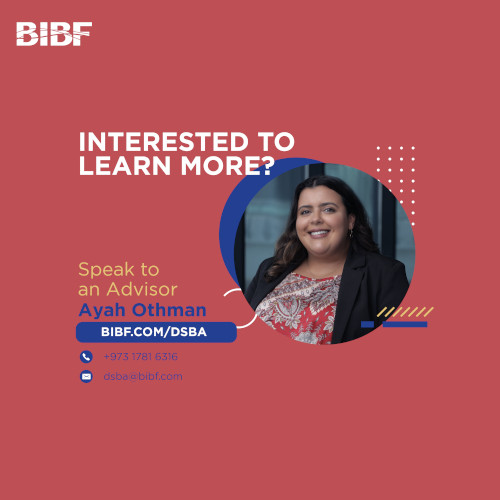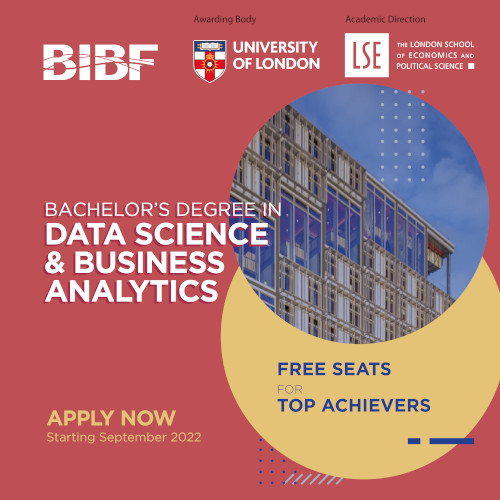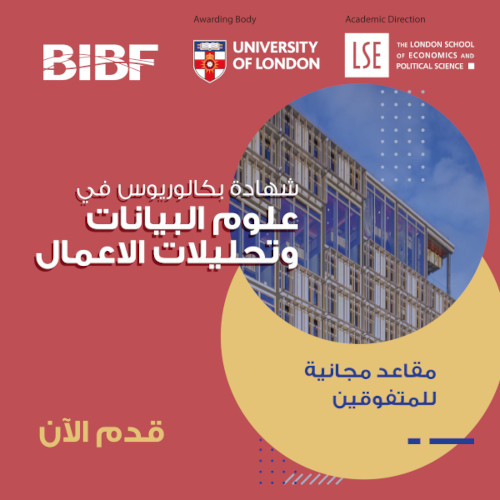PROGRAMME HIGHLIGHTS
Data Science and Business Analytics Bachelor’s Programme
In association with University of London with Academic Direction of London School of Economics (LSE)
A FOUR YEAR PROGRAMME (FOUNDATION YEAR + B.Sc.)
The BSc in Data Science and Business Analytics prepares you for postgraduate opportunities and rewarding careers in data science, analytics, and other growing fields. This degree will also provide you with essential training in probability, statistics, mathematics and computing tools for the visualization and analysis of large datasets deriving valuable insights from data. The programme has a strong focus on methodology, but also on applications in finance and economics as well as in business, marketing and beyond.
SCHOLARSHIP OPPORTUNITIES AVAILABLE FOR TOP ACHIEVERS
To include Foundation Year along with 3 years of study in the UoL programme.

Varied Career Opportunities |

Science of the Future |

Free Seats for Top Achievers |

University of London Curriculum |
PROGRAMME DETAILS
UNIVERSITY BROCHURE





